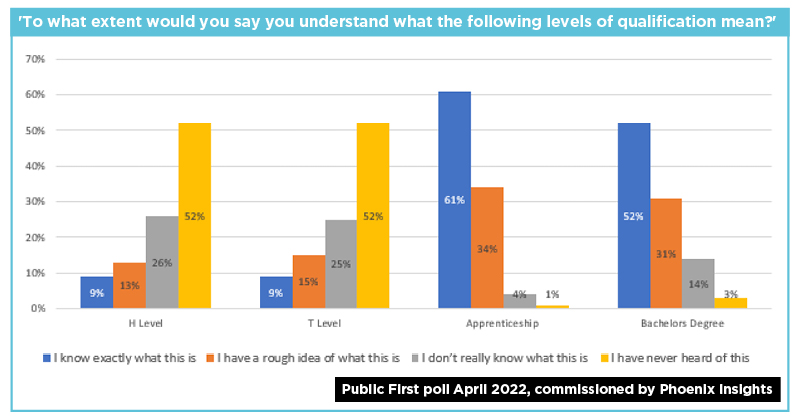The lifelong loan entitlement won’t drive behaviour change unless the public know about it, write Ed Reza Schwitzer and Patrick Thomson
During both our times in government we have seen countless policies falling at the final hurdle, whether under Labour, the coalition or Conservatives – implementation. Typically, the bigger the policy, the more that can go wrong.
And in the education and skills world they do not come much bigger right now than the lifelong loan entitlement (LLE).
As universities minister Michelle Donelan said: “Like the revolutionary ideas that shaped the founding of our NHS, LLE is based on the idea that people regardless of background or wealth should have a clear understanding about their loan entitlement, with those eligible able to access the system flexibly – as and when they need it.”
Comparing the LLE with the NHS? No pressure then.
The challenge
At its heart, the challenge for the LLE is behavioural.
If students continue to use their entitlement to study traditional three-year degrees at age 18, the LLE hasn’t delivered its objectives.
With more people living and working for longer, we need a system that genuinely supports people to access opportunities to train and reskill at all stages of life.
Success means different types of learners, including people in mid-career, returners and older workers, accessing more flexible, shorter courses offered by providers, who have in turn engaged with employers on what they need.
So how can the Department for Education achieve this?
We polled a nationally representative sample of over 2,000 people in the UK and ran four focus groups with people in their 40s, 50s and 60s to find out.
Raising awareness requires employer buy-in
The LLE will not drive behaviour change unless the public know the opportunities it provides them.
A cautionary tale on this comes from T Levels, which are also a relatively new initiative. The DfE has spent substantial time and resources raising awareness about them.
However, in our polling we found that awareness of T Levels is almost identical to the awareness of fictional ‘H levels’.
Whatever the government has done to drive up awareness of T Levels, it cannot rely on doing the same for the LLE.

A better route could be to build awareness via employers, particularly for people in mid-career who already have ties to their employer.
It is not clear from the government’s recent LLE consultation who would-be learners can go to for support around the LLE. We would hypothesise that individuals’ existing employers would be a natural port of call.
An existing ‘touch point’ the government could use is the midlife MOT, different models of which have been trialled by government, businesses and providers. The government offer consists of free online support to encourage people in their 40s, 50s and 60s to undertake more active planning in the key areas of work, wellbeing and money – and it’s aimed both at employees and employers.
Linking the LLE to the midlife MOT would utilise an existing touch point for changing behaviour.
Providers will need to change their offer
Even if individuals are aware of the LLE, they will only use it if the offer suits them. When we asked poll participants what they thought would make the LLE scheme successful, the top-ranked answer (74 per cent) was “the ability to fit the learning around other commitments (e.g. caring or work)”.
In our focus groups, this was absolutely crucial for midlife and older workers in particular. Whether this means more bitesize courses, night-time and weekend classes, part-time learning, or something else, it is clear the LLE has to be about developing more flexible courses. This can only happen through proper engagement with providers.
In short, the LLE has great potential.
But successful implementation will require more serious engagement with employers and providers, if the government wants to succeed in driving genuine behaviour change.









Your thoughts